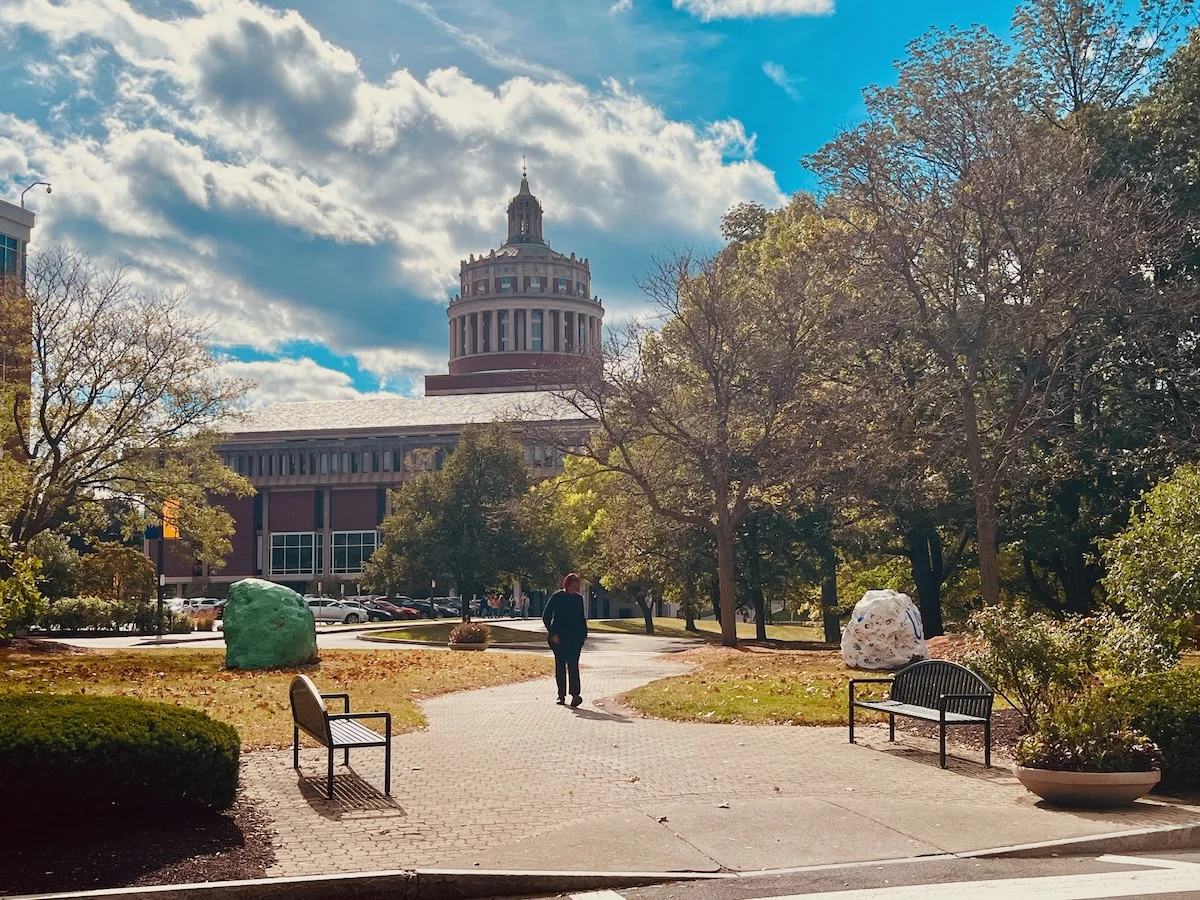Teen Traveler and I took a few days of her February school break to do some college campus tours in Boston.
We picked four very different colleges that have the kind of programs she wanted, but we didn’t know much about them otherwise and went in with open minds.
She came away loving two and not liking the other two at all. More important, the things she liked and didn’t like will helped her to know what to look for on our next weekend of college visits, in Rochester, NY.
These college campus tours are free and well worth your time. But any college tours that are more than a few hours from home involve paying for hotels, meals, gas and parking, plus taking time off from work. So you want to make the most of your time at each school and see as many schools as you reasonably can in the time you allow.
This is the second weekend of campus visits we’ve done — we took a quick trip down to Philadelphia in the fall to visit a small suburban liberal arts campus and bigger urban one. I have a good understanding now of how to manage a college-tour trip so that it’s productive and not overwhelming or exhausting.
Here are my tips for planning a tour of college campuses during junior and senior year of high school.
You might also want to read my Post on
• 3 Smart Tips for Touring Boston & Cambridge Colleges With A Teen
Tops Things To Do in Boston With Teens
• How To Plan A Memorable Vacation With Your Teen
15 Tips To Make College Campus Tours Manageable & Worthwhile:
Planning Your College Campus Visits
1. Teen Traveler was only a high school sophomore when we did our first tours. We might wind up repeating some in junior or senior year if they wind up at the top of her application list.
They’re close enough to home that that’s Okay. If we have to fly to visit some schools we would assume we weren’t going to visit again unless she was accepted and we’d make a point of being more thorough.
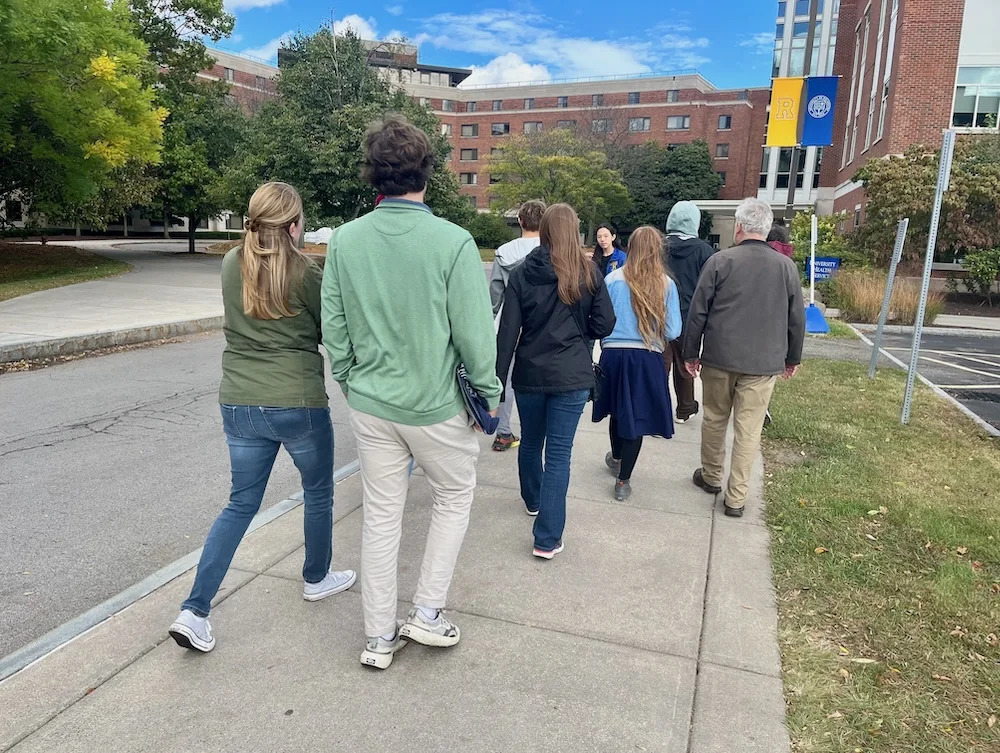
Visting at that early dat date was worthwhile though. By visiting a half dozen colleges in nearby cities—big and small, urban and suburban, liberal arts and dedicated engineering schools— she has seen how different colleges and campuses can be, what different colleges have to offer in terms of community, extracurricular activities, classes and programs and the variety of dorm options.
The suburban Philadelphia college was empty on a weekend afternoon while the urban campus was bustling with students going in and out of the library and student union, holding bake sales and eating at outside tables near the dining halls.
Seeing that contrast was enlightening and prompted her to ask how students typically spend their weekends on future tours. She also quickly learned to ask about college maker spaces, which most engineering schools have but students never mention on the tours.
We’ll probably check out a college or two in any city we visit over the next two years.
2. In Boston we saw the four schools over two days and I think five over three days would probably be our absolute limit.
Going on in-person college tours means getting yourself to the campuses, maybe finding parking, and finding the right building by a set time. You start by listening to an information session that’s 45 minutes or so. Then there is a student-led walking tour that can last an hour to 90 minutes and happen in rain, snow or sun. It’s tiring.
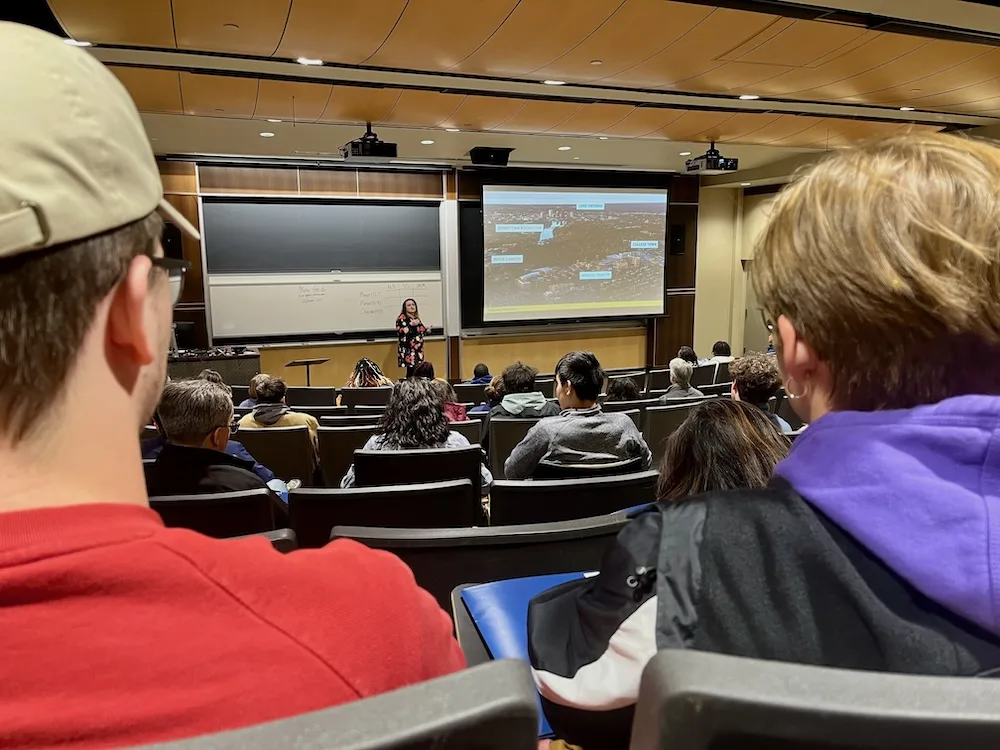
As distinct as the schools were, the presentations for prospective students all follow the same format and can begin to run together. Two colleges in one day issued the same caution against focusing your essay on your grandparents.
3. Some schools only give one guided campus tour a day, others had two, and one had a choice of more than a half dozen time slots, which influenced our scheduling. Plan on two hours at each school, more if there are specific things you want to check out or people you want to talk to outside of the tour.
Schedule one morning and one afternoon visit. And leave time to travel between them and take a break for something to eat. Two hours is ideal, depending on how far apart they are.
4. I wish I had looked at a map before I started scheduling the campus tours we did in Boston because I could have grouped them better and cut down on the time we spent going back and forth around Boston and Cambridge
5. Online information sessions and tours are not a replacement for a campus visit. But If you have a long list of potential campuses in one destination, they can help you decide which ones you want to prioritize. And they can help you to know what questions you might want to ask on the tours you choose to do.
6. Ask your school’s college counselor if they can put you in touch with alumni from your high school who are attending the schools that are high on your list, especially if you can’t book a tour, and even if you can. They aren’t official ambassadors, so you can ask blunter questions and get unfiltered answers.
While on the campus
7. Take the guided tours. If you’ve taken the time to drive to the college you want to see it properly. Walking around a campus on your own gives you a sense of the physical environment but no deeper insights.
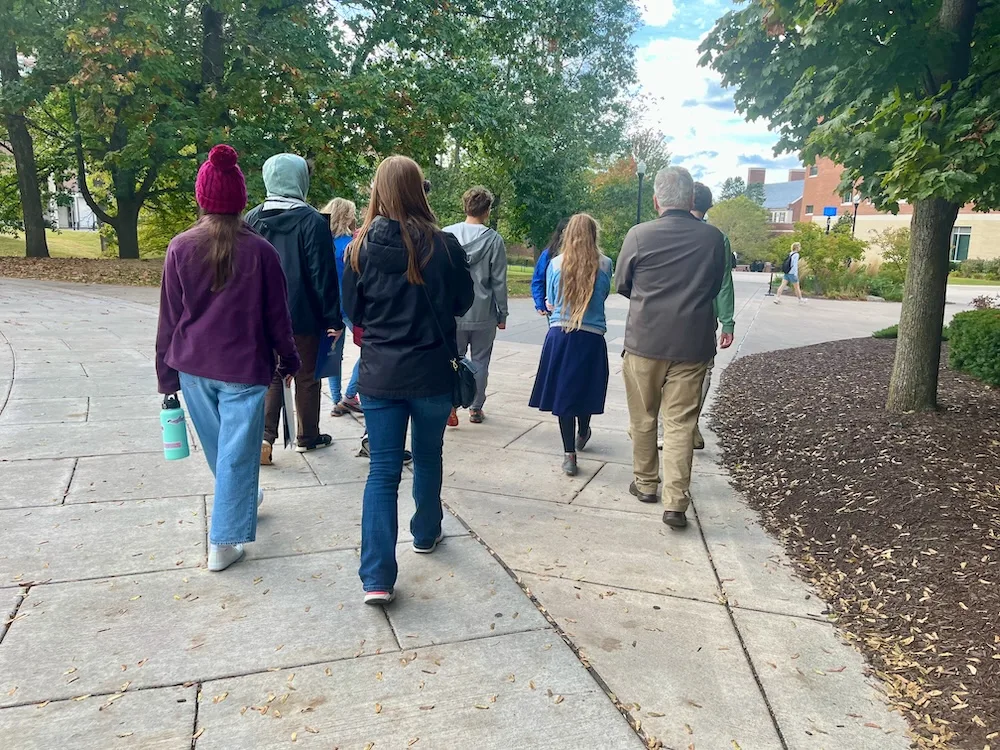
The tours are usually led by students. Hearing about their experiences, why they chose the school and what they like about it really influenced our impressions.
One university had more diverse offerings and was more laid back than we expected. Another seemed great in the presentation by struck us as too big and anonymous once the guide began leading us around.
We asked the guide at one school how connected the school was to the city where it was located. She answered, “Not at all, really.” For a kid who wants a mix of campus and city resources this answer sent the college lower on her list.
The college campus tours are often on weekdays, which is frustrating, but there you have it. Try to take advantage of school breaks you have when colleges are in session. In New York that’s often January Regents week and February break.
8. While on tour, look around: Are students walking between classes alone or in pairs? Are they sitting on the quad? Are they working in groups in the library? Do the dining halls look inviting?
One school had a food court full of brand-name fast food chains; felt like an airport food court. Many teens would view this as a plus, but it turned me off from both a dietary and school-culture POV.
9. We paid attention to whether the faces we saw on campus seemed diverse and whether diverse kids were hanging out together. Teen Traveler noticed that lots of students on one campus were wearing school sweatshirts and almost no one was on another, which she interpreted as a indicator of community and school spirit.
We also considered the area around a campus. Is it safe? Is it lively? Where is the nearest grocery store, coffee spot or drug store? Can you get around without a car?
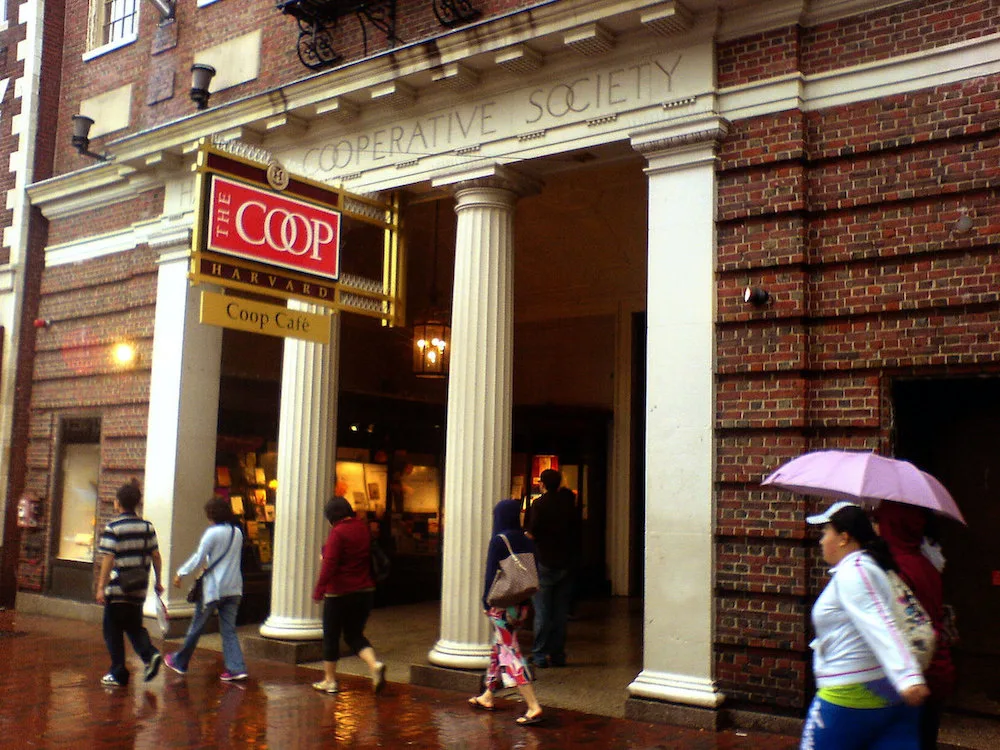
10. Ask the tour guides what students do and where they go on weekends. What are the best places to study? Do they live on or off campus? How’s the food? Pay attention to whether they mention activities, roommates, campus traditions. Ask about internships and study abroad opportunities if they don’t come up.
I also like to ask what they would change about the school if they could. It’s rarely a deal breaker but is usually enlightening.
What To Do After the Campus Visits
11 After each campus visit I’d ask Teen Traveler what she liked and what she didn’t, what she’d still want to know and if she could see herself on that campus. It helped to nail down her impressions and decide what she really thought of a place.
12. Take photos if you’re allowed to. At the very least make notes after the tours (Google Sheets is ideal for this). This will help you keep track of details you might want to refer to when you’re applying.
13. Reward yourselves! I make sure to book a nice dinner every night after a day of tours. Our feet and brains are usually tired and treating ourselves helps to reenergize us for the next day’s tours.
14. There was never quite enough time for sightseeing when we were done for the day. I’d contemplated getting theater tickets for one of the nights we were there and was glad I didn’t; we both would have fallen asleep during the play.
If you want to combine sightseeing with the campus tours keep it light. And perhaps plan a longer trip so you can keep to one college a day or bookend the college visits with the tourist stuff.
15. One thing we regretted was not booking a hotel with a pool. A swim (and ideally, a soak in a hot tub) would have been relaxing and perked us up before dinner, especially since we often had time to kill in the late afternoon. And we wished the hotel had a lounge where we could sit in the evening and play games.
Pin it for later!
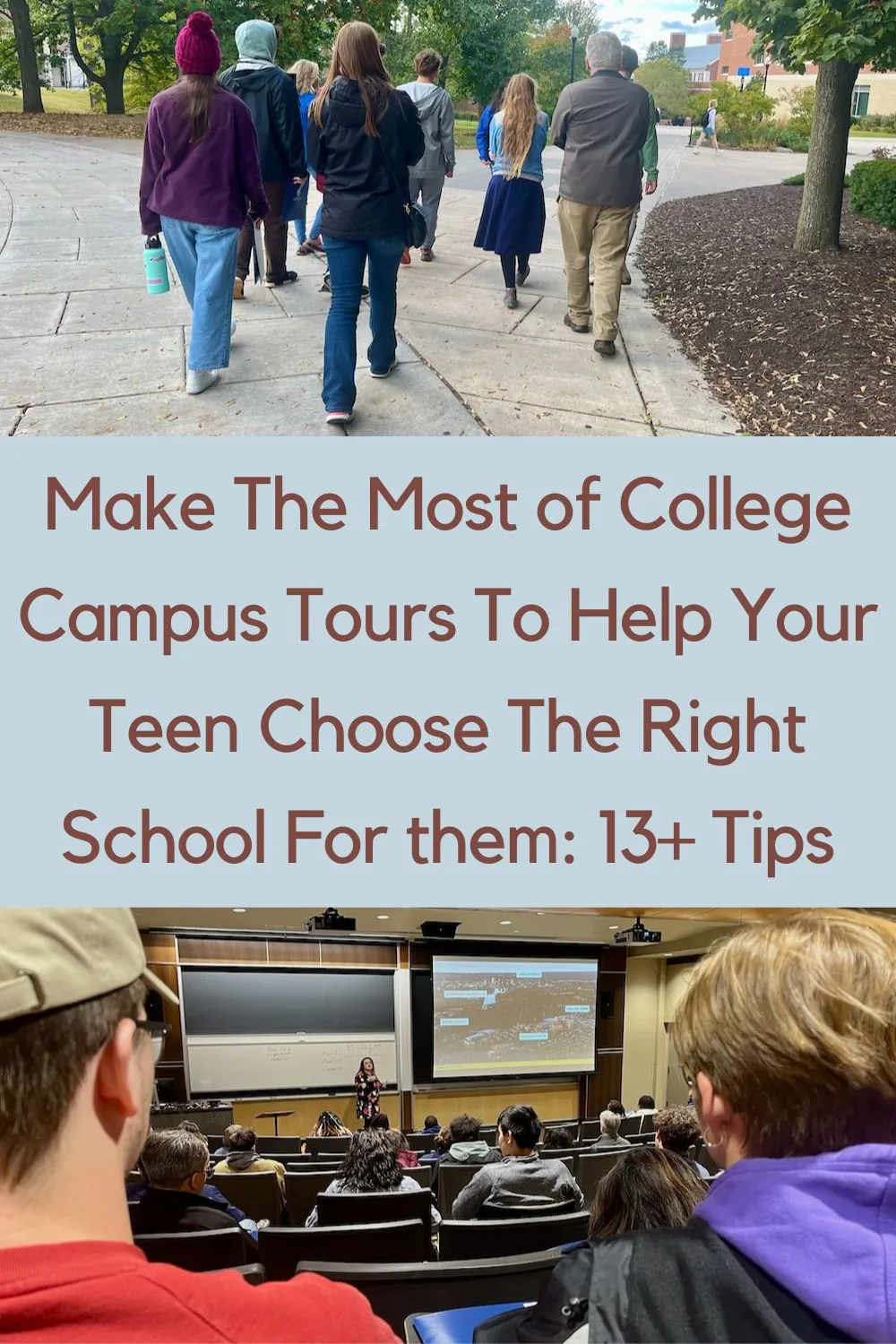
Photos: Top four photos are from our University of Rochester tour (FamiliesGo!©); Harvard Co-op (CC).

